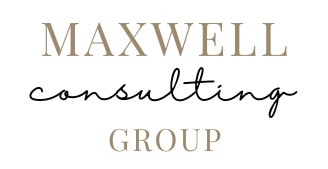
“It’s time to get back to the original purpose. Business is supposed to work for society, not the other way around.”
– CB Bhattacharya
– CB Bhattacharya
What is ESG?
ESG stands for Environmental, Social, and Governance dimensions in an organization. It's a globally recognized framework used to develop responsible, accountable, and purpose driven business practice.
It challenges that business has a greater responsibility to benefit the world than simply producing single bottom line profit.
ESG is not limited to a specific industry- it's used across public, private, and non-profit sectors.
When engaged authentically, ESG acts as a transformational roadmap to infuse purpose and meaning into every task, every role, and every output. At the Maxwell Consulting Group, we call this business with a soul.
Activities of ESG include courageously envisioning opportunities for impact and transformation, ruthlessly investigating risks and externalities, and implementing holistically better business practices that grow people, planet, and profit.
It challenges that business has a greater responsibility to benefit the world than simply producing single bottom line profit.
ESG is not limited to a specific industry- it's used across public, private, and non-profit sectors.
When engaged authentically, ESG acts as a transformational roadmap to infuse purpose and meaning into every task, every role, and every output. At the Maxwell Consulting Group, we call this business with a soul.
Activities of ESG include courageously envisioning opportunities for impact and transformation, ruthlessly investigating risks and externalities, and implementing holistically better business practices that grow people, planet, and profit.
“It’s time to get back to the original purpose. Business is supposed to work for society, not the other way around.”
– CB Bhattacharya
– CB Bhattacharya

“A non-sustainable company is unsustainable.”
― Fábio Pestana Bezerra
― Fábio Pestana Bezerra
Why should we engage in ESG?
1. ESG is an opportunity to be an influential contributor to world change and respond effectively to societal mega trends.
2. It's a vehicle of innovation to do business differently by aligning with sustainable design, deploying emerging technology, fostering next-generation leaders, and building your resiliency capacity, all of which has a positive net impact and generates profitable solutions.
3. There are increasing local and global regulatory requirements, from climate related reporting to accessibility, pay transparency to modern slavery, fund regulation, and UNDRIP (United Nations Declaration on the Rights of Indigenous Peoples), to name a few. Be ahead, not behind, as regulatory requirements in your industry increase.
4. Now more than ever we are seeing shifting societal expectations. Stakeholders who impact your business have a louder voice in what they expect of you. Rooting out negative practices and growing responsible business from the inside out protects you long term.
2. It's a vehicle of innovation to do business differently by aligning with sustainable design, deploying emerging technology, fostering next-generation leaders, and building your resiliency capacity, all of which has a positive net impact and generates profitable solutions.
3. There are increasing local and global regulatory requirements, from climate related reporting to accessibility, pay transparency to modern slavery, fund regulation, and UNDRIP (United Nations Declaration on the Rights of Indigenous Peoples), to name a few. Be ahead, not behind, as regulatory requirements in your industry increase.
4. Now more than ever we are seeing shifting societal expectations. Stakeholders who impact your business have a louder voice in what they expect of you. Rooting out negative practices and growing responsible business from the inside out protects you long term.
“A non-sustainable company is unsustainable.”
― Fábio Pestana Bezerra
― Fábio Pestana Bezerra

“As a business, are you really successful if the community around you is not thriving? To see a transformed economy and a better future for people we need to go further and we need to go faster. We need an economy that guarantees equity for all.”
-Christine Bergeron
-Christine Bergeron
What is a Responsible, Accountable, and Purpose-Driven Organization?
We believe that viewing business solely for the purpose of profit is a failure of the imagination.Responsible, accountable, and purpose driven organizations ask themselves the hard questions, and have the courage to imagine people, planet, and profit balanced equally as their view of successful business.
These types of organizations ask courageous questions, such as:
What are the hidden costs of our work on people and planet?
Do the communities we work in thrive as a result of our business?
Do we consider environmental concerns in our business transactions?
Where do we use our power and influence for good?
Are we prepared to survive the uncertainty of the future? Are we as a company a good investment?
Do we have engaged, equitable relationships with diverse communities, such as queer, disabled, IBPOC+ (Indigenous, Black, and People of Color) communities?
Are we a psychologically safe and inclusive place to work for all people?
How do we invest in our next generation of leaders?
Do we contribute to a healthy supply chain and engage diverse suppliers?
How do we manage cybersecurity risks such as code backdoors, insider threats, and external third parties?
Do we govern from a responsible, accountable, and purpose driven business model?
Answering these questions leads to organization wide strategy, accountability, goal setting, public disclosure, and much more.
These types of organizations ask courageous questions, such as:
What are the hidden costs of our work on people and planet?
Do the communities we work in thrive as a result of our business?
Do we consider environmental concerns in our business transactions?
Where do we use our power and influence for good?
Are we prepared to survive the uncertainty of the future? Are we as a company a good investment?
Do we have engaged, equitable relationships with diverse communities, such as queer, disabled, IBPOC+ (Indigenous, Black, and People of Color) communities?
Are we a psychologically safe and inclusive place to work for all people?
How do we invest in our next generation of leaders?
Do we contribute to a healthy supply chain and engage diverse suppliers?
How do we manage cybersecurity risks such as code backdoors, insider threats, and external third parties?
Do we govern from a responsible, accountable, and purpose driven business model?
Answering these questions leads to organization wide strategy, accountability, goal setting, public disclosure, and much more.
“As a business, are you really successful if the community around you is not thriving? To see a transformed economy and a better future for people we need to go further and we need to go faster. We need an economy that guarantees equity for all.”
-Christine Bergeron
-Christine Bergeron

"Society is demanding that companies, both public and private, serve a social purpose. To prosper over time, every company must not only deliver financial performance, but also show how it makes a positive contribution to society. Companies must benefit all of their stakeholders, including shareholders, employees, customers, and the communities in which they operate."
- Larry Fink
- Larry Fink
Where Do We Start?
ESG is a specialized field and requires approaches that are often not found in the business toolbox.
There is higher and higher criticism of inauthentic ESG, with claims of slactivism, virtue signalling, exploitation, and greenwashing.
Engaging third party expertise can reduce risk, and help you build best practice for your organization.
The Maxwell Consulting Group delivers comprehensive consulting services, including ESG Strategy and Impact Project Development, Leadership Coaching, ESG Education and Training, and Ethical Storytelling Services.
"Society is demanding that companies, both public and private, serve a social purpose. To prosper over time, every company must not only deliver financial performance, but also show how it makes a positive contribution to society. Companies must benefit all of their stakeholders, including shareholders, employees, customers, and the communities in which they operate."
- Larry Fink
- Larry Fink
Curious?
Reach out to envision your transformative ESG strategy, leadership development, training, and storytelling with us.
